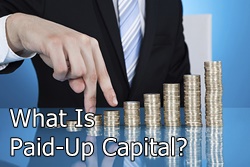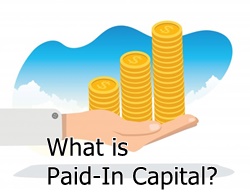
Table of Contents
What is Paid-Up Capital?
Paid-up Capital is the money amount that a company received from shareholders in exchange for stock shares. It is formed when a firm sells its shares directly to investors on the primary Market, generally via Initial Public Offering (IPO).

When shares are purchased and sold on the secondary market amongst investors, no extra Paid-Up Capital gets created since the profits in such transactions go to the shareholder who is selling and not to the issuing company.
Explaining Paid-Up Capital
Also known as contributed capital or Paid-In Capital, paid-up capital arrives from two different funding sources, which are the excess capital and the par value of the stock. Every stock’s share is issued with a certain base price, which is known as the Par. Generally, this value is extremely low. Thus, if an investor pays an amount that is more than the par value, it is known as the paid-in capital in excess of par or the additional paid-in capital. On the Balance Sheet, the issues shares’ par value is listed as preferred stock or common stock under the section of shareholder equity.
When a firm wants to increase equity, it simply cannot sell parts of the company to any bidder. Businesses have to request permission so as to issue public shares by filling the application. In fact, the company also gets a maximum capital amount to raise by selling stocks. This is known as the authorised capital. Usually, the authorised capital amount that a firm applies for is higher than what it needs. This is done so that the firm can seamlessly sell extra shares in the future if there is a need for equity. Considering that the paid-up capital is generated only by selling shares, the paid-up capital amount can never be more than the authorised capital.
Talk to our investment specialist
How Important is Paid-Up Capital?
Paid-up capital signifies money that hasn’t been borrowed. A firm that is completely paid-up would sell all of the available shares; thus, is unable to increase the capital unless it borrows the required amount by taking a debt. However, a company can also receive authorisation to sell more shares. The paid-up capital figure of a company signifies the extent to which a company is dependent on equity financing to execute its operations. This figure can also be compared to the debt level of the company to figure out if it has a healthy financing balance.
All efforts have been made to ensure the information provided here is accurate. However, no guarantees are made regarding correctness of data. Please verify with scheme information document before making any investment.












